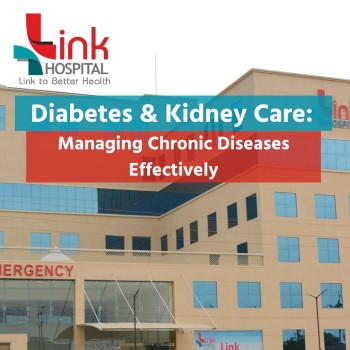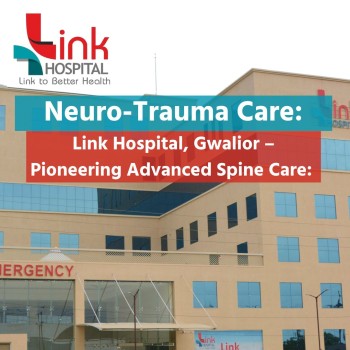Obesity is a global health issue
affecting millions of people across all age groups. While various factors
contribute to obesity, poor eating habits play a significant role. Adopting
healthy eating habits is crucial for both preventing and managing obesity. This
blog will explore effective dietary changes and strategies to promote weight
loss and a healthier lifestyle, along with how Link Hospital can support
individuals in their journey towards better health.
Understanding the
Importance of Healthy Eating Habits
Healthy eating isn't just about weight loss—it's about nourishing the body with essential nutrients. Poor eating habits, such as consuming high-calorie junk food, processed foods, and sugary beverages, lead to weight gain and associated health risks like diabetes, hypertension, and heart disease.
+
Key Healthy Eating Habits
to Combat Obesity
1. Focus on Balanced Meals
A balanced diet includes a variety of
foods from all major food groups: fruits, vegetables, lean proteins, whole
grains, and healthy fats. This ensures you get essential vitamins, minerals,
and fibre to keep your body functioning optimally.
Tip: Opt for colourful vegetables, which are rich in antioxidants, and
lean proteins like chicken, fish, or tofu to maintain muscle mass while losing
fat.
2. Control Portion Sizes
Large portions can significantly
contribute to overeating. Pay attention to portion sizes, especially when
dining out or snacking. Small, controlled portions help regulate calorie intake
and prevent overconsumption.
Tip: Use smaller plates and avoid second servings to naturally reduce your portion size.
3. Reduce Processed and Sugary Foods
Processed foods, high in refined sugars
and unhealthy fats, are major contributors to obesity. These foods are low in
nutrients and often lead to weight gain and health issues.
Tip: Replace sugary drinks and snacks with healthier options like water,
herbal teas, and fruits.
4. Eat More Fiber-Rich Foods
Fiber helps with digestion and keeps you
full longer, reducing overeating. Foods like whole grains, legumes, fruits, and
vegetables are excellent sources of dietary fibre.
Tip: Include fibre-rich foods in every meal to maintain satiety throughout
the day.
5. Stay Hydrated
Drinking enough water is crucial for
overall health and can help manage weight. Sometimes, thirst is mistaken for
hunger, leading to unnecessary snacking.
Tip: Aim for at least 8 glasses of water a day and avoid sugary drinks.
Healthy Eating Plans
Tailored to You at Link Hospital
At Link Hospital, we understand the
complexities of obesity and provide personalized nutrition and lifestyle plans
to help you achieve your weight goals. Our team of experienced dietitians and
nutritionists offer tailored guidance, whether you're looking to lose weight or
simply adopt healthier eating habits. We offer comprehensive weight management
programs that include:
●
Dietary consultations to develop
individualized meal plans
●
Nutritional counselling to help manage chronic
conditions related to obesity
●
Medical interventions, if necessary, to
support long-term weight management
Conclusion
Healthy eating habits are a cornerstone
of preventing and managing obesity. By adopting a balanced diet, controlling
portion sizes, reducing processed foods, and staying hydrated, you can
significantly improve your overall health and well-being. For expert guidance
and tailored weight management solutions, Link Hospital is here to support you
every step of the way.
Make your health a priority today—visit
Link Hospital for personalized care that helps you achieve your weight loss and
healthy lifestyle goals.











